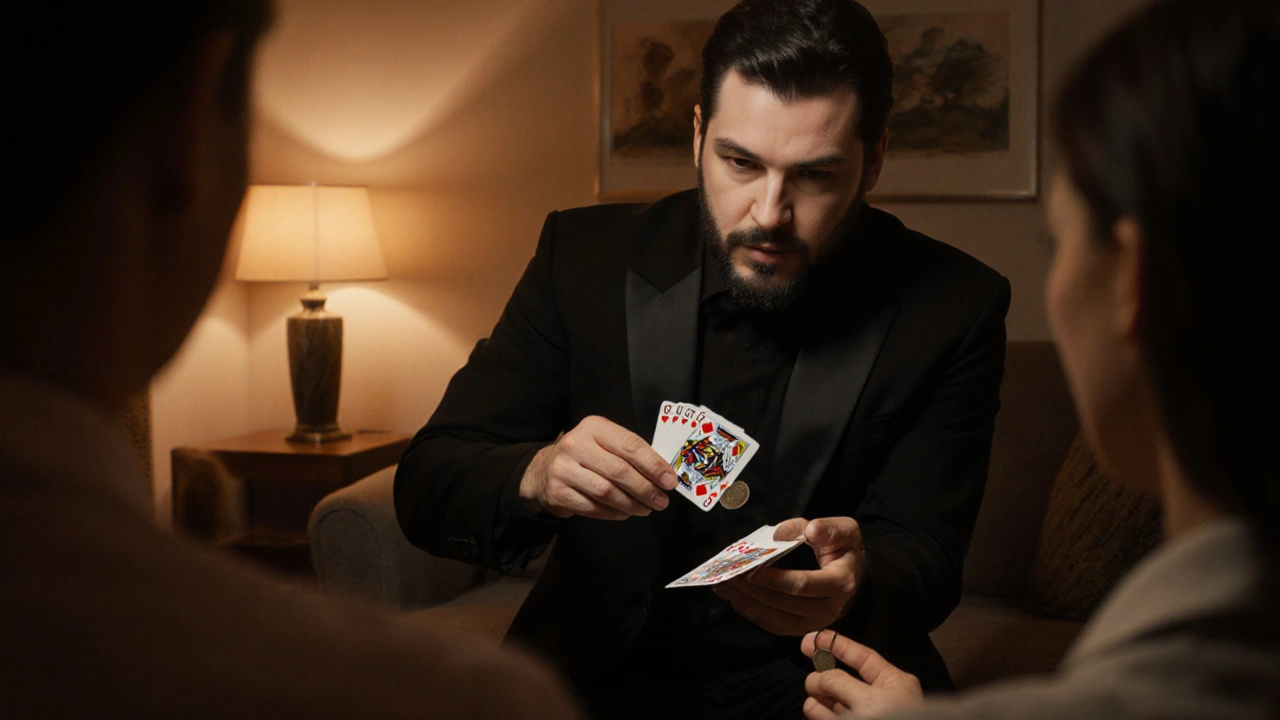Magic Words: The Secret Language of Illusion
When working with magic words, brief phrases that spark a psychological cue and steer an audience’s focus. Also known as secret phrases, they form the backbone of many mentalism, performances that mimic mind reading routines. Magic words are more than gimmicks; they are tools that shape perception.
One key related idea is mind reading, the illusion of knowing thoughts without direct contact. Practitioners pair mind‑reading with magic words to create a seamless flow: a well‑timed phrase can make a vague suggestion feel like a direct insight. This relationship shows that magic words encompass psychological triggers, while mind reading provides the narrative context.
How Psychology Powers the Phrase
The science behind magic words lives in psychology, the study of how people think, feel, and act. Concepts such as priming, authority bias, and the Barnum effect turn a simple sentence into a persuasive hook. When a magician says, “You’re thinking of a number between one and ten,” the audience’s mind is already nudged toward that range. This illustrates that magic words require precise timing and delivery to maximize impact.
Another essential component is misdirection, the art of directing attention away from the method. A well‑placed magic word can act as a red herring, pulling focus just as the secret move happens. In practice, misdirection influences magic words by providing a cover story; the audience never suspects the phrase is part of the trick.
Putting these pieces together, we get a clear semantic chain: magic words encompass psychological triggers; mentalism influences magic words through suggestion; misdirection supports magic words by hiding the method. These connections give each trick a layered foundation that feels effortless on stage.
What does this mean for you? If you’re learning a new routine, start by identifying the key phrase that will anchor the effect. Test different wordings, watch how the audience reacts, and tweak the timing. Notice how a slight change in emphasis can shift the entire perception of the trick.
For beginners, the simplest approach is to pick a phrase that feels natural and matches the story you’re telling. Advanced performers often craft custom scripts, weaving multiple magic words together to build a narrative arc. Both paths rely on the same core principles: psychology, timing, and misdirection.
Our collection below covers every angle of this topic. You’ll find deep dives into mentalist techniques, step‑by‑step guides for mind‑reading tricks, and real‑world examples of how a single “thank you” can become the ultimate magic word. Whether you’re a hobbyist or a stage‑ready performer, the insights here will help you sharpen your phrasing and boost your impact.
Ready to see the specific tricks, secrets, and practical tips? Scroll down to explore articles that break down each element—mentalism tricks, psychological cues, and misdirection tactics—so you can start using magic words like a pro.

What Are the Five Magic Words to Say for Better Magic Tricks?
- by Sophia Levet
- on 3 Jan 2026
Discover the five psychological magic words that top magicians use to control attention, create illusion, and make tricks feel impossible-even without fancy props. These aren't spells-they're proven language tools.

What Are the Three Magic Words We Should Always Use?
- by Zephyr Blackwood
- on 4 Dec 2025
The three magic words-'Watch this,' 'How?' and 'Want to learn?'-transform simple tricks into unforgettable moments. Discover why these phrases work better than any prop in your magic trick kit.

What Are the 5 Magic Words That Actually Work in Magic Tricks?
- by Zephyr Blackwood
- on 27 Nov 2025
Discover the five simple but powerful words magicians use to create unforgettable illusions. These aren’t spells-they’re psychological tools that turn basic tricks into mind-blowing moments.

100 Magic Words Every Magician Should Know
- by Zephyr Blackwood
- on 6 Oct 2025
Discover the definitive list of 100 magic words, why they work, and how to use them in performances and everyday persuasion.
